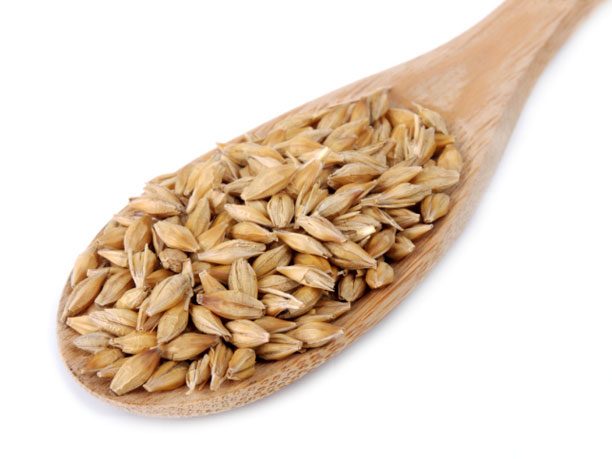Best Foods for Your Heart
SALMON

When you serve salmon as your main entrée you’ll keep your blood pumping and your heart in prime shape. Studies show consuming fish regularly each week is associated with a 30 percent lower risk of developing coronary heart disease over the long term, notes Georgia nutritionist Kantor. “Cold water fish, such as salmon, contain omega-3 fats, lower levels of harmful lipid levels,” Kantor says. “Omega-3s also lower blood pressure slightly and can help prevent irregular heart rhythms, while also reducing inflammation throughout the body.” Serve your salmon with a side of collard greens and you have a scrumptious, heart-friendly meal.
Almond

Vitamin B2 (riboflavin), vitamin E, magnesium, and zinc all help to make a handful (about 1/4 cup a day) of crunchy almonds good for your heart and your mood. B vitamins and magnesium help produce serotonin, which helps regulate mood. Zinc has also been shown to fight some negative effects of stress, while vitamin E is an antioxidant that destroys the free radicals related to stress and heart disease. They're the perfect snack — so much better than a bag of chips. Or, add some slivered beauties to your morning oatmeal.
Leafy greens
 Spinach, kale, dandelion greens, turnip tops, and Swiss chard — they're all amazing foods that provide iron plus lots of vitamin C, both good for strong bones, teeth, and hair, and vitamin A and magnesium, both of which are excellent at helping you maintain calm. Sauté one or more type of greens with lemon or orange juice and garlic, or purée with a little low-sodium chicken or veggie broth and white beans for a satisfying soup.
Spinach, kale, dandelion greens, turnip tops, and Swiss chard — they're all amazing foods that provide iron plus lots of vitamin C, both good for strong bones, teeth, and hair, and vitamin A and magnesium, both of which are excellent at helping you maintain calm. Sauté one or more type of greens with lemon or orange juice and garlic, or purée with a little low-sodium chicken or veggie broth and white beans for a satisfying soup.
Lean beef
 Surprised this is on the list after hearing admonitions from experts about avoiding the red stuff? Don't be. Beef is a substantial stress buster. It's loaded with zinc, iron, and B vitamins (not to mention protein), all known for keeping us calm and happy. It is also satiating, meaning you feel fuller longer (hunger pangs can cause irritability and anxiety). Avoid fatty cuts, and stick to lean cuts like flank and skirt steak, and 95 percent lean ground beef. Or, look for cuts marked "round" or "loin," such as top sirloin, bottom round (great for pot roast), and tenderloin — they are the kindest cuts in terms of fat content. And limit your intake to 4 to 6 ounces when you do enjoy it.
Surprised this is on the list after hearing admonitions from experts about avoiding the red stuff? Don't be. Beef is a substantial stress buster. It's loaded with zinc, iron, and B vitamins (not to mention protein), all known for keeping us calm and happy. It is also satiating, meaning you feel fuller longer (hunger pangs can cause irritability and anxiety). Avoid fatty cuts, and stick to lean cuts like flank and skirt steak, and 95 percent lean ground beef. Or, look for cuts marked "round" or "loin," such as top sirloin, bottom round (great for pot roast), and tenderloin — they are the kindest cuts in terms of fat content. And limit your intake to 4 to 6 ounces when you do enjoy it.

WALNUTS

As a convenient snack in a bag or on top of a salad, walnuts boost your heart functions with healthy omega-3 fats and antioxidants. “Eating two ounces a day has been shown to improve blood vessel function among people with diabetes and also protect people from heart disease who are at risk for it,” says Bridget Swinney, a Texas-based registered dietitian and the author of "Eating Expectantly: The Practical and Tasty Guide to Prenatal Nutrition." Swinney points out that a handful of nuts has also been shown to lower cholesterol levels and help satisfy hunger.
Whole grains
 Cracked wheat, barley, faro, millet, and quinoa are just a few of the 19 whole grains you can cook with and enjoy in all sorts of dishes. Whole grains digest slowly, keeping you feeling fuller, longer. Plus they boost serotonin levels and make you feel happy — and they brighten your mood because they're so delicious! A half-cup serving size of any whole grain alongside a serving of veggies and lean protein should have you strolling on the sunny side of the street in no time. Follow packaging directions for preparation, but realize that most whole grains don't require any special technique. However, toasting them in a dry pot for a few minutes before adding water adds depth of flavor.
Cracked wheat, barley, faro, millet, and quinoa are just a few of the 19 whole grains you can cook with and enjoy in all sorts of dishes. Whole grains digest slowly, keeping you feeling fuller, longer. Plus they boost serotonin levels and make you feel happy — and they brighten your mood because they're so delicious! A half-cup serving size of any whole grain alongside a serving of veggies and lean protein should have you strolling on the sunny side of the street in no time. Follow packaging directions for preparation, but realize that most whole grains don't require any special technique. However, toasting them in a dry pot for a few minutes before adding water adds depth of flavor.

Oatmeal

Rich in soluble fiber, oatmeal is great for fighting cholesterol. It helps to soak up the cholesterol before it gets absorbed in the bloodstream.
BERRIES

Packed full of antioxidants, berries are a great snack choice to keep your heart healthy. Berries increase good cholesterol (HDL) and lower bad cholesterol while lowering your blood pressure. In addition, the low-calorie, fat-free fruit (in any form: fresh, frozen, dried or cooked) contains nutrients that promote bone growth and the conversion of fat to energy. “These little cancer fighters combat oxidation and inflammation and should be eaten daily,” Frey says. As if that’s not enough, the hardworking fruit possess polyphenols, which have been shown to increase levels of nitric oxide, a molecule that causes blood vessels to relax.
BEANS

Just a half-cup of beans a day will keep your heart in optimal shape, according to Georgia-based nutritionist Dr. Keith Kantor. “Soluble fiber is a key reason why beans are beneficial to your heart,” Kantor says. “The fiber binds to cholesterol and keeps it from being absorbed in the gut and building up to unhealthy levels.” Add some black, kidney, lima, navy, pinto or white beans to your next meal for that extra dose of soluble fiber, in addition to folate, magnesium, calcium, omega-3 fatty acids and B-complex vitamins -- all essential nutrients to keep your heart healthy.
-----------
Sources :
- inlifehealthcare.com
- http://www.livestrong.com
- http://www.rd.com/